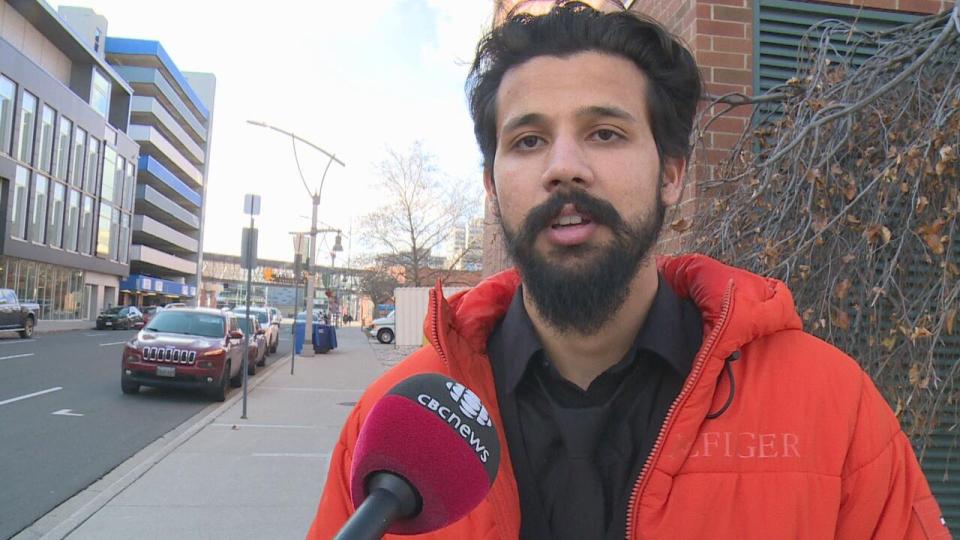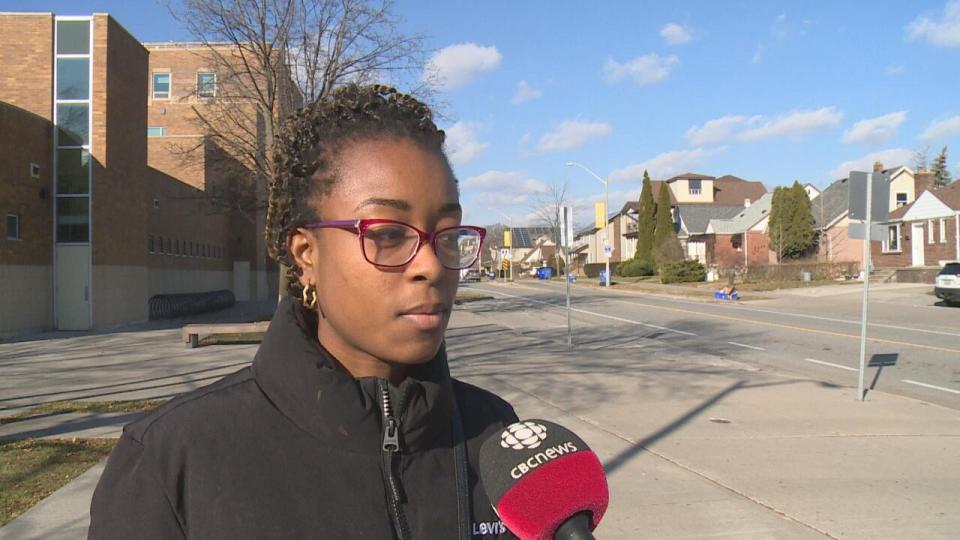Fewer students might come to Canada due to higher income requirement, students say

A plan to double the amount of money international students must prove they have before studying in Canada could have an effect on enrolment, students say.
Jaskaran Singh, an international student from India studying at St. Clair College, agrees with the federal government's move.
Though it won't affect him personally, he says plans to boost the requirement from $10,000 to $20,635 will result in less interest from students — which he sees as a good thing for his home state of Punjab.
"The less they come here, the less they will struggle," he said.

Jaskaran Singh says some students from Punjab, India, where he is from, will think twice before applying to Canada because of the increased income requirement. (TJ Dhir/CBC)
The $10,000 minimum has been in place since the early 2000s. In addition to boosting the financial requirement, the government has announced plans to end a temporary policy in the spring that allowed international students to work more than 20 hours per week while in Canada.
Immigration Minister Marc Miller acknowledged the financial struggles of students in announcing the moves last week.
"We are revising the cost-of-living threshold so that international students understand the true cost of living here. This measure is key to their success in Canada," he said in a media release.
"We are also exploring options to ensure that students find adequate housing. These long-overdue changes will protect international students from financially vulnerable situations and exploitation."

Onyinye Eze is studying communications and liberal arts at the University of Windsor. (TJ Dhir/CBC)
Onyinye Eze is one student who might have changed her study plans had the new requirement been in effect.
The University of Windsor student, who is from Nigeria, says it's "not good news to hear" and she hopes for a policy she says would favour students more.
She is being supported by her family, but says if she had to come up with $20,000, she wouldn't have come to Canada.
"When I came, it wasn't that hard," she said.
Policy a 'security blanket'
St. Clair College's vice-president of international relations says the school supports Ottawa's move and had advocated for it.
"It's a security blanket, so to speak, for the cost of living and any difficulty students might find themselves in when they're here for their two or three years of education," said Ron Seguin. "So with the increased in cost of living, housing, groceries, you're seeing more and more students fall through the cracks."
The number of international students varies from semester to semester but generally makes up roughly 38 per cent of the school population, or around 4,400, according to Seguin.
Seguin doesn't think, however, the policy will have an effect on enrolment levels.
"Early indications from our agent network is, we don't think it's going to affect us negatively at all," Seguin said.
No one at the University of Windsor was made available for an interview.
The change in policy will apply to new visa applications starting on Jan. 1.


